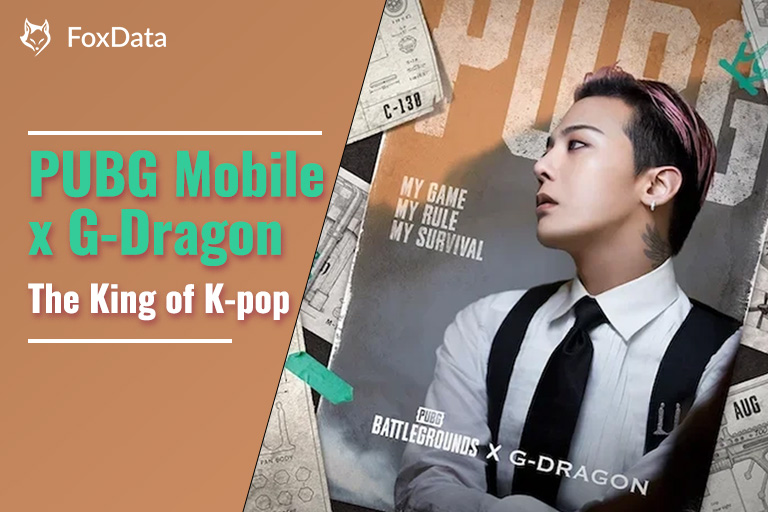“Player Surge Leads to Project Bankruptcy?” Hidden Concerns and New Opportunities Behind AI+Gaming

"We're even considering whether to suspend new user registrations — because we can't afford the rising costs," said the technical lead for the AI game Death by AI at GDC 2025.
Within three months of its launch, this indie game, featuring an NPC AI free-dialogue system, attracted 20 million players, but nearly "died from the traffic."
"Death by AI" App Store Listing, source: FoxData.
Another AI social game, *Status*, has surpassed 1 million users and 500,000 DAU, yet is also on the verge of "bankruptcy due to too many users." According to the developers, the costs incurred during the testing phase using ChatGPT 3.5 alone made "official launch" a high-risk endeavor.
"Status" has surpassed 1 million users globally, according to FoxData.
This impressive milestone highlights a key trend in the gaming industry:
Is AI + gaming truly a boon for developers?
Or is it a more complex cost labyrinth?
AI is redefining three critical aspects of gaming:
1. From Auxiliary to Dominant: AI as Gameplay
Previously, AI was limited to script acceleration, character art generation, and voice-over. Now, it's becoming integral to gameplay. NPCs offer dynamic responses, player choices genuinely influence narratives, and the "AI-driven interaction engine" is reshaping core gaming experiences.
Games like "AI Dungeon" center on player-AI dialogue, where the AI dictates the story's progression, rather than pre-set options.
Numerous development teams are integrating technologies like Inworld AI to transform NPCs into "individuals with memory, logic, and emotional responses," shifting AI from a support tool to a core gameplay element.
2. Small Teams, Big Impact: Development on the AIGC Fast Track
AI significantly lowers the barriers to game development. "Status," a social AI game developed by an independent team, gained substantial users within two weeks of launch.
While the team size isn't public, the project's scale and rapid growth suggest a lean core team, a departure from the resource-intensive models of traditional large studios.
3. Rapid Model Iteration × Rapid User Growth = Loss of Control
Challenges are emerging. AI models can become outdated within a month, leading to player complaints about repetitive storylines, robotic NPCs, and monotonous voice acting. The transition from user excitement to churn can occur within a week, as users move from initial interest to disengagement.
Meanwhile, community discussions, viral short-form video content, and keyword ranking surges often outpace team optimization efforts, leaving developers struggling to keep up.
The "launch-and-fail" reality stems from a complex set of structural issues:
- Soaring Costs: Frequent dialogues × ten-thousand-level calls × multi-scenario exports = escalating token costs.
- Version Transition Challenges: Models become outdated quickly, impacting user experience.
- Lack of User Feedback Mechanisms: Inability to understand churn reasons, relying heavily on subjective assumptions.
- Uncontrollable Community Sentiment: A single voice update can backfire, leading to rapid negative feedback and reputational damage.
- Inability to Assess ROI: Difficulty in evaluating the quality of traffic, new user quality, and return on investment from ad campaigns.
In short: Without data feedback, success for small teams is a high-risk gamble.
The real breakthrough lies not in larger models, but in clearer feedback mechanisms.
Even the smartest AI cannot predict player emotional fluctuations; cutting-edge gameplay will quickly be overshadowed if user "engagement perception" isn't established.
What you truly need is not "smarter answers," but answers to questions like:
- Is the sudden increase in user churn due to plot fatigue, character inconsistencies, or experience gaps?
- After a model switch, where exactly did we lose points? Naturalness of voice? Semantic incoherence?
- Is the decline in the frequency of user-generated content going viral due to a cooling topic or a broken dissemination path?
These feedback clues won't appear directly in AI strategy scheduling but will change with market trends, player behavior, and campaign performance.
✅ Without a pre-established data observation system, all optimizations are blind adjustments.
AI trends explode fast and fade even faster: Who can transition from "hot start" to "cold start growth"?
Many AI mini-game teams face the same challenge after their initial surge in popularity: traffic channels stall, user return rates plummet, and user acquisition costs skyrocket.
They then realize:
AI gameplay ≠ automatic conversion. A hit is just the beginning; the product's true capabilities are tested in the cold start phase of its lifecycle.
Taking recent AI interactive narrative casual games as examples, we've observed several small to medium-sized teams deploying market feedback mechanisms during the cold start phase: securing store search positions through stable keyword layouts, simultaneously testing different ad creative combinations, and monitoring competitor rankings and user review trends.
This approach allows them to optimize their testing rhythm at a lower cost. Instead of solely relying on model demonstrations to attract exposure, they precisely adjust their user acquisition and ad placement strategies through data-driven methods to capture their initial target audience.
Many of these executions are actually achieved through market analysis platforms like FoxData.
- 📈 Keyword Ranking Trend Tracking: Evaluate short-term trending keywords/mid-to-long-term breakout keywords.
- 📲 App Store Hotness Monitoring: Real-time capture of chart fluctuations to aid in ad placement and ROI assessment.
- 🎯 Ad Creative Library Categorization and Analysis: Compare the ad strategies and unique creatives used by AI-themed games in different regions.
- 🔁 Competitor Growth Path Tracking: Identify growth actions taken by other teams at various stages.
🧠 By comparison, you can clearly see:
Whether to continue investing to "maintain heat," or switch channels to "change the rhythm";
Whether aggressive creatives convert well, or story-driven copy better retains users.
Unveiling the Core Logic Behind Cold Start Growth in the AI Era
In the initial 1-2 weeks of an AI product's viral success, innovative gameplay might drive growth.
However, from week 3 onwards, developers without robust data observation mechanisms are left hoping users remain engaged.
FoxData doesn't dictate your gameplay strategy; instead, we provide clarity by helping you understand:
- What are the most effective user acquisition (UA) paths of your competitors?
- Is further investment in user acquisition still viable?
- Are keyword search volumes peaking?
- How long do competitors on the app store charts sustain their momentum?
Crucially, in the face of diminishing shallow traffic gains in the AI space, teams that can visualize their "growth waveform" are best positioned to accelerate.
FoxData's Competitive Analysis Features. Source: FoxData.
In the age of AI-driven games, understanding trends is more crucial than simply following models.
The rapid content creation enabled by AI has unleashed unprecedented gameplay innovations in the gaming industry. However, each launch, ad campaign, and product adjustment carries a hidden cost: delayed decisions can lead to missed opportunities.
We've observed numerous AI game projects rapidly acquiring users, only to face challenges post-launch, such as slowing growth, ad fatigue, and uncertainty in content adjustments. This isn't due to a lack of creativity, but rather weak feedback loops.
Sustained product evolution isn't driven by "bigger models," but by an understanding of external signals: player behavior, market trends, and competitor strategies.
This understanding relies on data sensitivity and a streamlined decision-making toolset.
FoxData provides a data-driven framework for independent teams, operations managers, and content creators in the AI product space, particularly during the cold start phase:
From keyword popularity to chart trends, from ad creative combinations to competitor ASO strategies, we equip you with a set of market-understanding metrics, independent of the unpredictable model landscape. You don't need to be glued to dashboards, but relying solely on intuition isn't enough.
If your AI product is in its growth phase or has just passed its peak, now is the time to establish a robust data mechanism—not just for enhancement, but to create space and informed judgment for the next wave of users.
—
🎁 If you're managing AI-driven features/interactive AI products or launching AIGC game concepts, FoxData offers a free trial.
Don't let your innovative features miss out on the next growth opportunity simply because of a lack of market insight.






